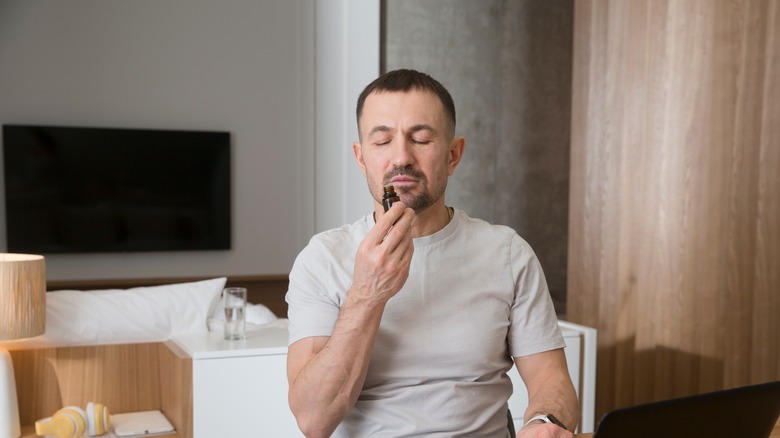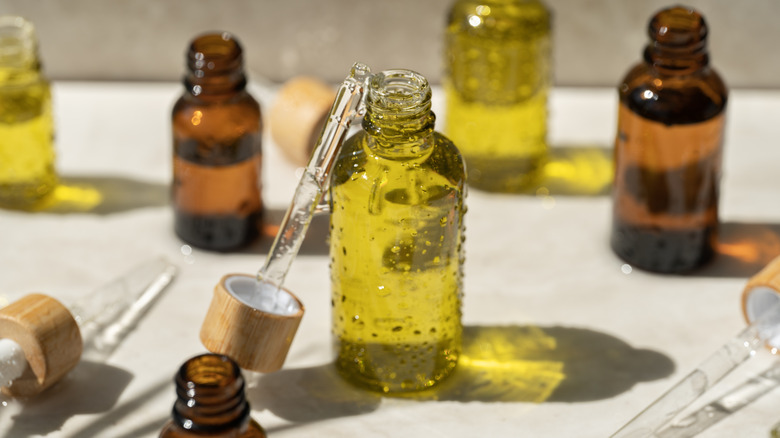What Essential Oils Can (Or Can't) Do For A Man's Prostate Health
Benign prostatic hyperplasia (BPH) is a health condition that often affects men as they get older. With this condition, the prostate, a small gland located below the bladder that helps make seminal semen, becomes enlarged. If the prostate grows large enough, it can block the flow of urine or cause various other problems with the bladder, urinary tract, or kidneys.
Medications and surgery are both treatment options for BPH (per Mayo Clinic). However, some sources, such as Dr. Axe, promote various essential oils as an alternative treatment. These sources claim that the oils have natural anti-inflammatory and antioxidant properties that can help with BPH symptoms. To get another point of view, we spoke with Justin Houman, MD, Director of Men's Health at Tower Urology at Cedars-Sinai Medical Center. According to Houman, these claims may be premature. "When it comes to managing benign prostatic hyperplasia (BPH) with essential oils, the evidence is quite limited," he said.
Evidence supporting essential oils for BPH is limited
Houman broke the evidence down on the essential oils that are often mentioned in connection BPH. Saw palmetto oil is one most commonly mentioned, he said, explaining that it's believed to inhibit the conversion of testosterone to dihydrotestosterone, a hormone that contributes to prostate enlargement. "However, studies on its efficacy have produced mixed results," said Houman, "with many showing no significant benefit over placebo."
Another essential often mentioned is pumpkin seed oil. "Rich in phytosterols, pumpkin seed oil is believed to support urinary function and reduce the symptoms of BPH," he said. However, there's just not strong evidence of this. "Again, while some small studies have suggested benefits, these results are not robust enough to be considered conclusive," said Houman.
Also, there is frankincense oil. Houman noted that it might provide some relief for the inflammation associated with BPH, but there's no clinical evidence to support its use specifically for prostate health.
Be cautious when using essential oils for BPH
Houman further cautioned that there is a lack of scientific evidence showing that essential oils are safe and effective for BPH. "Relying solely on these treatments can lead to delayed diagnosis and proper management of the condition," he said.
Additionally, there is the potential for drug interactions. "Some essential oils and natural supplements can interact with prescribed medications, potentially reducing their effectiveness or causing adverse effects," said Houman. "It's crucial for patients to consult with their healthcare provider before starting any new treatment regimen."
And, finally, he addressed concerns about quality and purity, saying that these can vary significantly between products. "Contaminated or impure oils might cause more harm than good, leading to allergic reactions or other health issues," Houman concluded.



